With experts across the WILDLABS community working with every type of technology and in every imaginable environment, our platform is a great place to find advice and resources on choosing what tools are right for your conservation project. Whether you're in the market to try a new camera trap model, want to experiment with drones for the first time, or need help weighing the pros and cons of data management tools, there's someone in the WILDLABS community who can help you make a smart and informed choice!
The Community Base is our general gathering group. It's the place where we cover more general, big picture topics in conservation technology - ones that don't fit neatly into our other groups. If you don't know where to post something, just post it in this group. Our moderators will move it if needed!
At our Community Base, you'll find updates from the WILDLABS team on upcoming events and opportunities, and have the chance to shape our programs and platform with your opinions. And most importantly, the Community Base is also home to our Welcome to WILDLABS thread, the best place to introduce yourself to us and the community. Stop by and tell us what you're working on!
Whether you're new to WILDLABS and want to know where to begin, or you're a longtime member looking for a handy bank of resources, our Getting Started on WILDLABS thread will be your one-stop guide to getting the most out of our platform.
Want to find out more about WILDLABS? Check out our recent community call:
Header image: Ana Verahrami/Elephant Listening Project
Group curators
- @TaliaSpeaker
- | She/her
WILDLABS & World Wide Fund for Nature/ World Wildlife Fund (WWF)
I'm the Executive Manager of WILDLABS at WWF

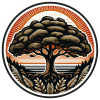

- 23 Resources
- 64 Discussions
- 31 Groups
- @alexrood
- | she/her
WILDLABS & World Wide Fund for Nature/ World Wildlife Fund (WWF)
I'm the WILDLABS Communications and Community Management Associate Specialist at WWF-US

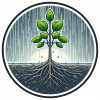



- 149 Resources
- 95 Discussions
- 6 Groups
No showcases have been added to this group yet.
- @jennamkline
- | She/Her
Imageomics Institute & ABC Global Climate Center
PhD Student @ OSU, Edge AI for Adaptive Animal Ecology Field Studies


- 0 Resources
- 7 Discussions
- 6 Groups
- @jonah
- | He
I am a Ugandan technologist passionate about using open-source tools and accessible data to support grassroots wildlife conservation. I am currently developing community-friendly bioacoustic and training resources to help local rangers monitor biodiversity more effectively
- 0 Resources
- 3 Discussions
- 3 Groups
- @carrieseltzer
- | she/her
Head of Engagement for iNaturalist. Ecology PhD.

- 0 Resources
- 1 Discussions
- 2 Groups
Aeracoop & Dronecoria
Computer engineer, Drone Pilot, Seed researcher, Wild Tech Maker





- 3 Resources
- 37 Discussions
- 11 Groups
- @theindieg
- | he/him
Running a small electronic engineering company focused on large scale sensor networks. We have interest in bioacoustics with bat and bird recorders, as well as a host of environmental sensors.


- 0 Resources
- 16 Discussions
- 6 Groups
- @joemuise
- | He/Him
I am a high school physics teacher who is always looking for interesting ways to engage students. This sometimes spills over to other fields where I can find applications of physics. I am currently working with a scientist on wavelength-specific light interactions with insects


- 0 Resources
- 4 Discussions
- 5 Groups
Ocean Science Analytics
Marine mammal ecologist and online technical trainer



- 1 Resources
- 41 Discussions
- 10 Groups
- 0 Resources
- 0 Discussions
- 10 Groups
My name is Sean Hill and I have been using off the shelf consumer drones and open source photogrammetry and Geographic Information Systems Software (GIS) since 2019 for conservation purposes. As of 2024 I have started an online training platform called GeoWing Academy



- 1 Resources
- 23 Discussions
- 6 Groups
- @Frank_van_der_Most
- | He, him
RubberBootsData
Field data app developer, with an interest in funding and finance




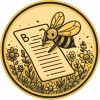
- 57 Resources
- 188 Discussions
- 9 Groups
DIY electronics for behavioral field biology



- 7 Resources
- 82 Discussions
- 4 Groups
- 0 Resources
- 0 Discussions
- 10 Groups
Read about the advice provided by AI specialists in AI Conservation Office Hours 2025 earlier this year and reflect on how this helped projects so far.
6 August 2025
If you're a Post-Doctoral Fellow, a PhD student, or a member of the research staff interested in applying your computational skills to support active research publications, please read on to learn about the Cross-...
5 August 2025
"Ingenious is a public engagement grants scheme for projects that engage the public with engineers and engineering while providing engineers with training and opportunities in public engagement."
21 July 2025
Lead a growing non-profit to sustain open source solutions for open science!
19 July 2025
From 2023 to 2024, WILDLABS has grown substantially, launching impactful new platform features, delivering critical funding opportunities, and connecting the community in new and exciting ways. Read more about the...
17 July 2025
Funding
Are you a young (between 18 to 35 years old) and dedicated nature conservationist committed to protecting wild species? Do you combine passion with action to create concrete results in nature conservation? Are you the...
10 July 2025
The Big if True Science Accelerator (BiTS) to supports scientists, engineers, and entrepreneurs in transforming bold concepts into actionable program designs.
8 July 2025
Are you interested in applying for The Boring Fund 2025? On this page you can find more information for this opportunity which provides up to $12,500 per project in funding for essential but overlooked aspects of...
2 July 2025
The Boring Fund supports the essential but overlooked aspects of conservation technology. In response to overwhelming demand in 2024, we’ve partnered again with Arm to provide more funding. In 2025, a total of $80,000...
2 July 2025
Careers
If you have a background in any of the following areas: bumblebee research, entomology, ecology, practical application of evidence for conservation, policy advocacy, data management and/or conservation-related education...
26 June 2025
Your role will be to deliver the Shrill Carder Bee Conservation Strategy 2020-2030 in England and Wales. This includes developing landscape-scale conservation projects for the Shrill carder bumblebee primarily in South...
26 June 2025
This is a chance to participate in a short survey about the preferences that conservation practitioners have for evidence. There's a chance to win one of three £20 Mastercard gift cards.
24 June 2025
October 2025
event
event
event
November 2025
February 2026
April 2026
event
June 2025
May 2025
event
April 2025
event
March 2025
event
| Description | Activity | Replies | Groups | Updated |
|---|---|---|---|---|
| Hi everyone,So excited to be here. Based in Vienna Austria and working as a Founder for Stop The Desert, assisting farmers who need training and funds to transition to... |
+441
|
Community Base | 9 hours 21 minutes ago | |
| This is wonderful, thanks for sharing! |
|
Community Base, Early Career, Human-Wildlife Coexistence, Women in Conservation Tech Programme (WiCT) | 9 hours 26 minutes ago | |
| Thanks Frank. |
|
Funding and Finance, Community Base | 9 hours 37 minutes ago | |
| Hello HenryCan someone submit more than one application with different ideas? |
+19
|
Funding and Finance, Community Base | 1 day 21 hours ago | |
| How to submit a proposal for the Boring Fund on the Platform ? |
+26
|
Community Base, Funding and Finance | 2 days 2 hours ago | |
| Interesting way to get community members contributing to the platform, to learn and share knowledge on GIS-Based conservation |
|
Community Base | 5 days 20 hours ago | |
| Would love to collaborate on this we are curently building agents for conservation Kind regardsOlivier |
|
AI for Conservation, Community Base | 1 week 5 days ago | |
| ...one of @jared ;) ...I think there are a few biz dev users from other legacy manuf., but yeah, they are not active. |
+21
|
Community Base | 2 weeks 1 day ago | |
| Hello Youssef,Yes, let's keep contact. I'm currently looking for good conferences to publish my work, if you are aware of something, please let me know. |
+53
|
AI for Conservation, Community Base | 3 weeks 5 days ago | |
| I thought you might find this model of connecting tech start-ups and developers to end users through Innovation Groups interesting and... |
|
Community Base | 1 month 2 weeks ago | |
| Support the Cartographer Cause! Hi there,I am on a mission to empower children and communities through maps, GIS — helping people better... |
|
Climate Change, Community Base, Conservation Tech Training and Education, East Africa Community, Geospatial | 1 month 2 weeks ago | |
| Thank you for your reply, ChadI meant 10 as a whole, indeed. Perhaps you see your post in one group, but since it is tagged for all groups, I assumed you meant 10 in total.In your... |
|
Acoustics, AI for Conservation, Animal Movement, Camera Traps, Citizen Science, Climate Change, Community Base, Connectivity, Drones, eDNA & Genomics, Emerging Tech, Funding and Finance, Geospatial, Human-Wildlife Coexistence, Software Development, Wildlife Crime | 1 month 3 weeks ago |
AgTech: Breaking out of silos
29 April 2025 6:24am
Interested in starting a new group on WILDLABS? Start preparing your application
9 May 2025 4:59pm
Survey on Earth Observation in Wildlife Ecology
8 May 2025 12:42pm
THE I4N AWARD
6 May 2025 7:27pm
Sustainable financing for open source conservation tech - Open Source Solutions + Funding and Finance Community Meeting
 Pen-Yuan Hsing
and 5 more
Pen-Yuan Hsing
and 5 more
1 May 2025 11:52am
How are you affected by the USA cutbacks and tariffs ?
26 February 2025 8:01pm
29 April 2025 9:55am
Hej all, I updated my question to include discussion about the tariffs as well.
From Field to Funder: How to communicate impact?
16 April 2025 3:51pm
17 April 2025 5:04pm
Great questions @LeaOpenForests !
I don't have concrete answers since I am not a stakeholder in any project in particular. Based on experience with research on the potential for a similar one-stop-shop for science metrics, I would suggest that there is no simple solution: different actors do need and have different views on presenting and viewing impact. This means possible gaps between what one group of actors need and what the other is willing or able to produce. One can hope, search and aim for sufficient overlap, but I don't see how they would necessarily or naturally overlap.
Still, I would guess that if there are dimensions of overlap, they are time, space and actor-networks
28 April 2025 3:18pm
I have posted about this in a different group, but I love boosting the impact of my communication through use of visuals.
Free graphics relating to conservation technology and the environment are available at:
National Environmental Science Program Graphics Library
Graphics below of a feral cat with a tracking collar and a cat grooming trap are examples of symbols available courtesy of the NESP Resilient Landscapes Hub, nesplandscapes.edu.au.
UMCES Integration and Application Network Media Library
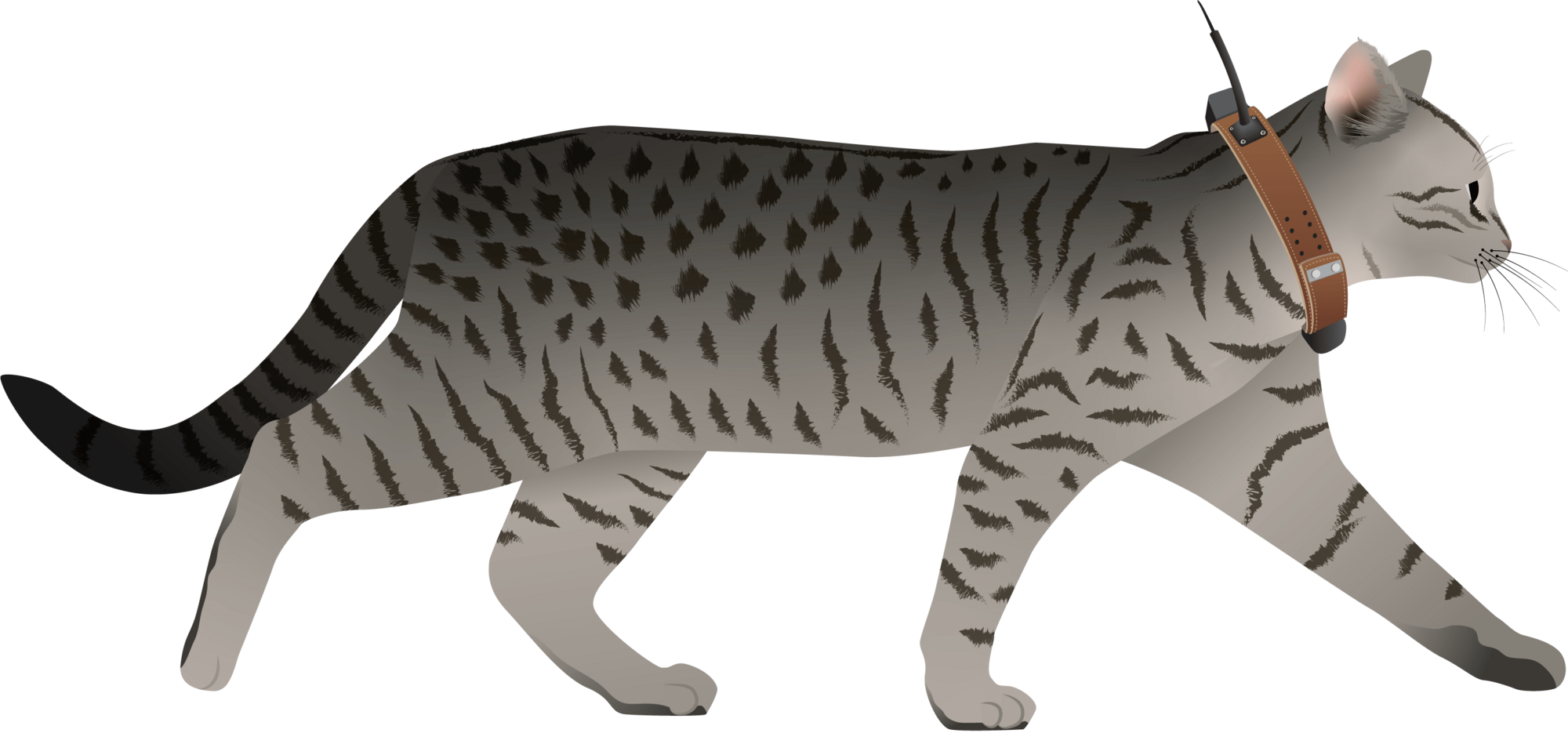

WILDLABS-WWF Graduate Intern
 WILDLABS Team
and 1 more
WILDLABS Team
and 1 more
17 April 2025 6:06pm
Catch up with The Variety Hour: April 2025
16 April 2025 5:00pm
¡Bienvenidos a la comunidad Latinoamericana! // Welcome to the Latin American community!
30 September 2024 5:05pm
6 October 2024 4:11pm
Bem-vindo Rafael!!
16 April 2025 4:40pm
Hola. Me gusto la idea! prefiero en español, mas que nada en todo este tema de informatica, etc, que ya posee un alto grado de dificultad. Aca en Argentina estoy trabajando con anfibios y grabadoras digitales automaticas, ahora comenzando a explorar sobre detección automatica o semiautomatica.
16 April 2025 4:52pm
Bienvenido Maxi!
WILDLABS Climate Week Conservation Tech Meetup: Washington, DC
 Alex Rood
and 2 more
Alex Rood
and 2 more
14 April 2025 6:47pm
Papers about gender and disability in conservation tech
21 March 2025 4:56pm
11 April 2025 10:26pm
Wow, thanks for sharing @Nycticebus_scientia. Would love to read further papers on these topics if folks have them!
Jennifer Ward Oppenheimer Research Grant 2025
9 April 2025 5:45pm
The boring fund: Standardizing Passive Acoustic Monitoring (PAM) data - Safe & sound
27 January 2025 3:47pm
8 February 2025 11:00pm
This is such an important project! I can't wait to hear about the results.
12 February 2025 4:15pm
Hey Sanne, awesome - we definitely need a consistent metadata standard for PAM.
If you haven't already, I would suggest sharing this on the Conservation Bioacoustics Slack channel and the AI for Conservation Slack channel. You would reach a lot of active users of PAM, including some folks who have worked on similar metadata efforts.
If you're not a member of either one of those, DM me your preferred email address and I'll send you an invite!
7 April 2025 11:07pm
Hello everyone,
Thank you all for your contribution!
You can read some updates about this project in this post.
Julia
Desafio IA Natureza & Clima / AI Challenge: Nature & Climate
1 April 2025 12:54pm
The Boring Fund 2024 - Statistics
30 March 2025 9:45pm
Multiple grants
28 March 2025 1:42pm
5 Insights from the 2024 Network Survey
27 March 2025 8:21pm
2 April 2025 10:21am
14 April 2025 6:32pm
17 April 2025 4:36pm
Nature Tech Unconference - Anyone attending?
8 March 2025 12:11pm
15 March 2025 8:28am
Definitely!
21 March 2025 12:07pm
The Futures Wild team will be there :)
26 March 2025 7:54pm
Yep see you on friday
WILDLABS Awards 2025: Meet the judges
 WILDLABS Team
and 1 more
WILDLABS Team
and 1 more
26 March 2025 1:13pm
14 April 2025 11:43am
14 April 2025 7:23pm
16 April 2025 6:09pm
Thank you and farewell!
7 February 2025 6:27pm
22 February 2025 1:34pm
All the best, and I'd like to think Bill the dog will be enjoying more walkies.
21 March 2025 8:27pm
You'll be missed sorely, Steph! Thank you for putting your heart & soul into building this community! Wildlabs.Net won't be what it is today, without your hard work! Hope you'll continue to stay in touch. Have a relaxing Sabbatical and best wishes for your next adventure! ❤️
25 March 2025 9:30am
Good afternoon Stephanie!
It is sad to see you go, but very exciting to hear that you will be on adventures new very soon! I wish you all the best in your future endeavours and thank you for this brilliant project that is Wildlabs, it is a truly wonderful community.
Take care, all the best and kind regards
Sean Hill
Mole-Rat Mystery. Can anyone help?
19 March 2025 3:25pm
20 March 2025 4:17pm
Hi Sean! I love that you are naturally curious and are pursuing really cool projects in your free time. I know absolutely nothing about cape dune mole rats (in fact, never heard of them prior to this post, but I will confess I was interested in the concept of a mole-rat mystery), but I did have some thoughts about where you might find more information-
It seems like the types of questions you are asking are pretty specific and niche. My first thought on how to find someone with expertise in these specific rodents was to go to their iNat page- there you can see the top observer and top identifier. Both individuals are active researchers, so I think reaching out to them on iNat or finding their e-mails from their respective organizations' sites might be a good way to get in touch.
I also did a quick search in Google Scholar in which I typed in only the scientific name and hit go. The two publications linked above caught my eye as potentially helpful in your search- particularly the first one. They excavated burrows and noted things like home range size, that males have more burrows than females, etc. I didn't go much beyond the abstracts but these seem like they might get you on the right tracks!
Happy ratting!
25 March 2025 8:36am
Good morning Vance
Thank you very much! I am looking into some papers that I was kindly directed to by Jocelyn Stalker ( her comment below) and am looking for ways to establish population dynamics just by looking at the mounds. Once I have figured this part out I should be able to correlate the information to the drone data. The Ground Sampling Distance (GSD) for this project is very small, 1.3cm per pixel. This has proven to be very useful because I am able to use the very fine 3D models to run change detections that pick up new heaps and vegetation reductions (which may be due to feeding) on a weekly basis. It helps not only visualise but also quantify where the most activity has occurred. I will keep you posted!
25 March 2025 8:47am
Good morning Jocelyn
Thank you very much for your comment, this is proving to be very useful advice and thank you so much for setting me on the right path!! This is very exciting!!
They are the most extra ordinary little creatures and as I don't know much about them either, I thought I'd try learn as much as I can (not just through literature, but through my own observations as well). I walk past these mounds daily and am always intrigued when I see more mounds and really enjoy watching them actively push the dune sand up to the surface (you don't see the wee fellas but you can watch the sand move as they burrow away). One afternoon while flying my drone (I was quantifying the changes in sediment deposition and erosion volumes in the estuary after a flood that was soon followed by a super high tide), I had a heap between my legs and all of a sardine it starts moving! So that sparked my curiosity even further.
I will keep you posted on my findings and thank you again for the papers and the direction! It is greatly appreciated!!
Wildlife Detection/Identification App for Security personnel at Airports.
5 October 2024 3:49am
7 October 2024 10:37am
Within the African Wildlife Forensics Network many investigators, customs officials and the like use the IDentifyIT App for species, and now cycads. It is a continual work in progress but it helps with in situ morphological ID.
13 March 2025 5:41pm
Not for ID but there is a "Wildlife Sentinel" app too. Great Idea by the way.
23 March 2025 12:55pm
Hi,
Thank you for your message I think there's some kind of application for this app not by itself by complementing technologies like NABIT, mentioned in an earlier comment.
So, haven't found anyone so far to have a full fledged discussion and feasibility of this idea yet.
What do you want to see from WILDLABS' social media?
25 February 2025 9:45pm
27 February 2025 4:10pm
@Frank_van_der_Most @WMXZ Thanks for the perspective! What we've done in the past is shared links to discussions happening on WILDLABS as a way to amplify their reach, and direct people to participate in the WILDLABS discussion thread if they have something to contribute. (Sort of like we did with amplifying the OSS/F&F callout for presenters or our digest recap posts.) I guess the thought is that someone on LinkedIn/Bluesky/other platforms might see us share a discussion thread through their social network and feel inspired to join in on the conversation and make an account.
27 February 2025 4:37pm
Thanks for your response, Alex! I would guess and hope the same, but do you have indications for what the effects actually are. I don't remember the registration form. Is there a question about how new members found the platform?
21 March 2025 1:27pm
I love the emails that lead me here.
Catch Up With The Variety Hour: March 2025
12 March 2025 5:07pm
WILDLABS and Nature Tech Collective Conservation Tech Meetup: London
12 March 2025 4:17pm
Arctic Community Wildlife Grants Program
7 March 2025 3:59pm
Presenters wanted: showcase your open source income streams
 Frank van der Most
and 5 more
Frank van der Most
and 5 more
17 February 2025 2:08pm
7 March 2025 12:06am
Thanks for your interest and sharing potential candidates, Vance!
7 March 2025 12:14am
Thank you for your interest @Alasdair !
7 March 2025 12:21am
It's great to see so much interest in presenting at this webinar. We have also received interest through direct messages and meetings that we've happened to have had. Thank you all for volunteering!
We will get back to you after wext week Wednesday ( 12th ) when there will be the next coordination meeting.
This date will also be the deadline for those still considering to volunteer.

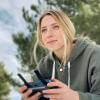





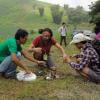

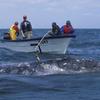



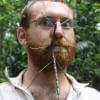
















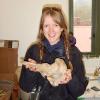
















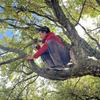


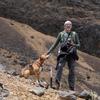

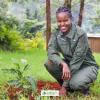



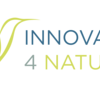




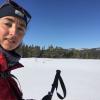

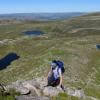






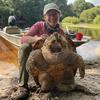

9 May 2025 5:07pm
@amberbc Hey Amber! The article on how to go about proposing a new group is live:
LMK if you have any questions!